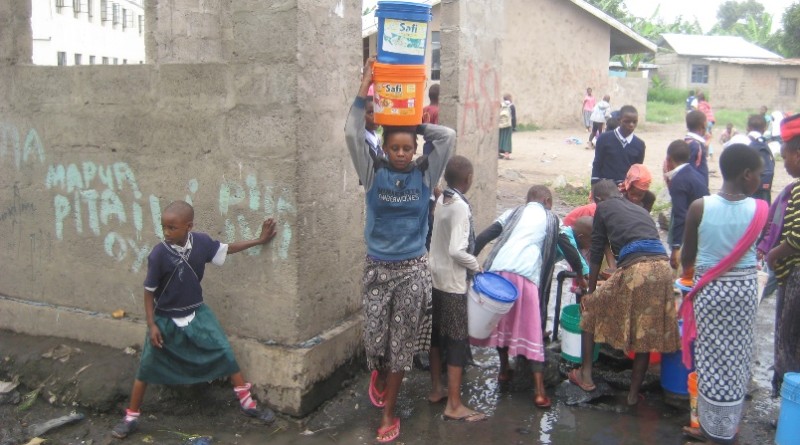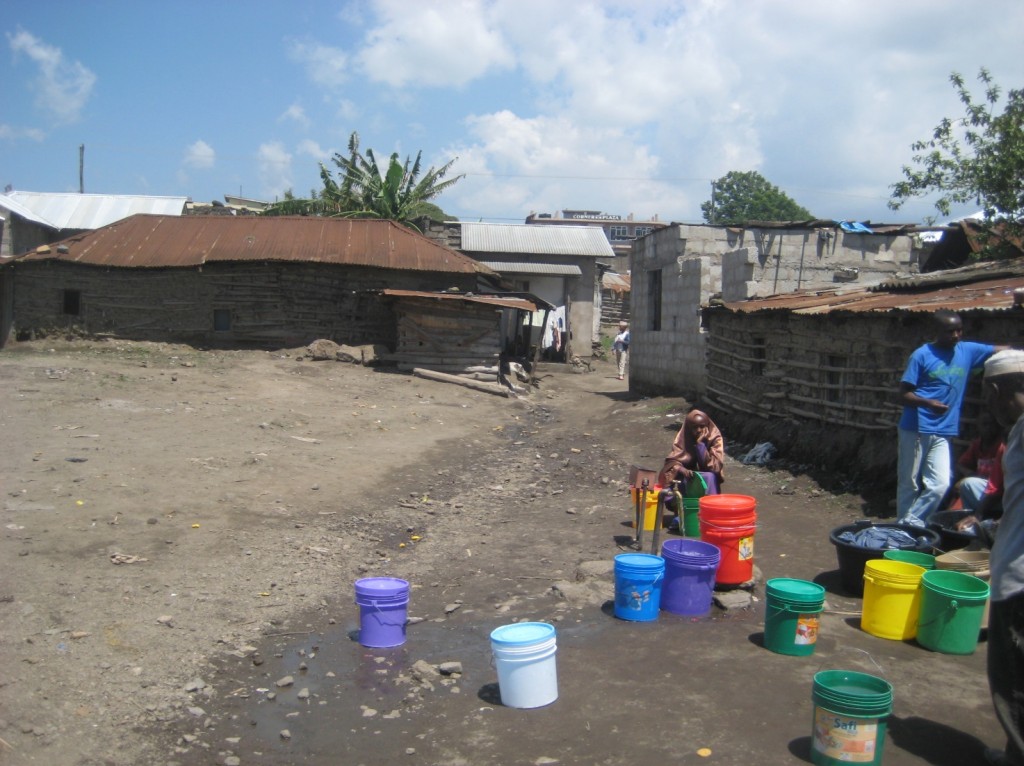Waiting for water in Arusha
By Carlos Enrique Aponte Rivero and Michelle Kooy
For many of the households that I visited during my research in Arusha, it is not easy to get water. In the lower income Wards of the city, like Sombetini or Unga Limited, households cannot afford an individual connection to the piped water network (if the network exists), and/or they cannot afford to drill their own private boreholes, which are anyway officially not allowed per the urban water utility’s regulations.
So – what do they do to meet the water needs of their household? They rely on public (or semi-public) water points, which distribute either groundwater or city piped water. These water points are often owned and operated by private households as a small business, and sometimes – rarely as a free public use. While these water points are not so far away from their homes (10-20 meter, but this too varies), all of the water collected has to be carried – usually by women, and children. The women often have to wait a long time to fill their buckets, especially at peak times in the morning.
Is this water scarce situation the same in all spaces of the city? Do all urban water users need to wait so long? We wonder, for example – how long they have to wait for water in the Corner Plaza – a business center we can see at the top of the photo. It is placed at the other side of the Unga Limited Ward border.


